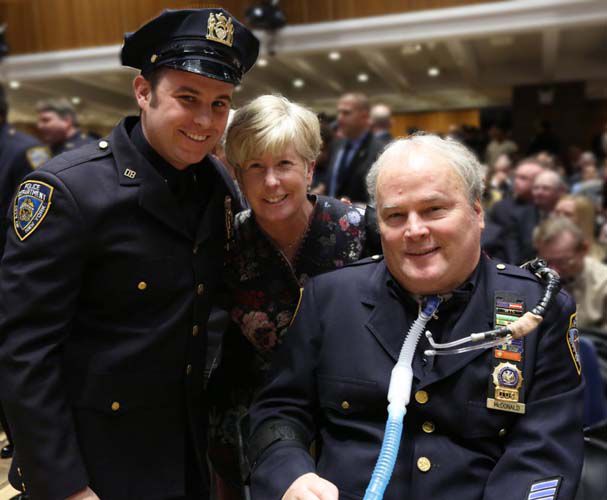Let’s face it: It’s not easy to forgive. Sure, it’s one thing to forgive a small slight or a wrong done to us that we’ve easily overcome. It’s quite another thing to forgive a grievous injury, a painful hurt, a lasting devastation. But presumably the sages across the centuries who have advocated the challenging act of forgiveness knew that. And if you’ve ever forgiven someone that appeared to you to be justifiably unforgivable, you too know the cost – and the gain.
A few weeks ago an individual died who was truly quite extraordinary for his willingness and his ability to forgive. Steven McDonald was a 29-year-old officer with the New York City police force when in 1986 he was shot by a teenager he’d encountered in Central Park. The teenager shot him first above the right eye. Then, as McDonald lay helpless on the ground, the teenager shot him a second time in the neck. Finally, the teen stood directly over McDonald and shot him a third time.
For the next 48 hours emergency teams worked feverishly to keep McDonald alive, but with little hope for success. His wife, just three months pregnant with their first child, was called to the hospital to say good-bye. But McDonald didn’t die. Instead he fought for life, though the life to which he clung would be vastly different from his old life. His new life would be marked by quadriplegia that left him dependent upon others for feeding, bathing and virtually every other activity of daily living.
Astonishingly, this man, who had experienced his body drastically and permanently altered by a senseless, violent act, did not allow himself to relinquish anything more to that cruelty. His heart and soul were not impaired. And when his son was born six months after the attack, McDonald felt he’d received a message from God in the gift of that child. He felt he was being called to a new way of being, free of any hatred or anger or bitterness. He began writing the teenager who shot him and offered his forgiveness. Further, he determined that the life he would lead from then on would be devoted to supporting others and conveying a message of the possibilities inherent in love.
McDonald remained on active duty with the police force for the remainder of his life. Though wheelchair-bound and respirator-dependent, he regularly addressed young police offers and counseled those who had been injured. His speaking was described as being marked by the power of gentleness.
When news of McDonald’s recent death was made public, photos of him were widely seen on the media, each one showing a face beaming with inner joy. Thousands whose lives had been touched by this determined, strong, gentle, loving man came to his funeral.
Of course, heroism comes in a variety of forms, and McDonald’s may have been one of the most extraordinary of all. He was a hero of forgiveness.
We could never claim that forgiveness is easy. But crafting a life of meaning, joy and depth after profound loss is certainly possible. Forgiveness asks a lot of us, but it just might turn tragedy to treasure.

